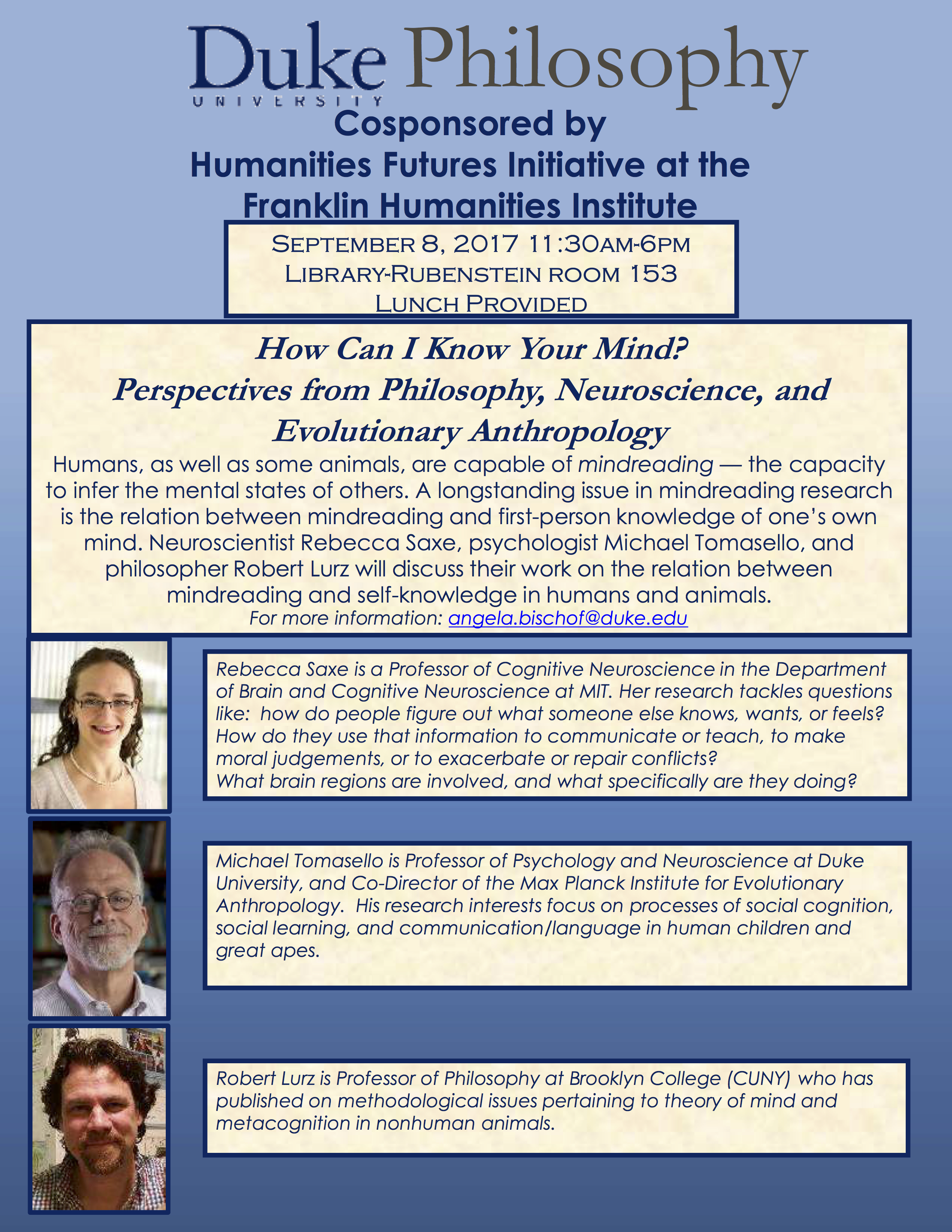Humans, as well as some animals, are capable of mindreading — the capacity to infer the mental states of others. A longstanding issue in mindreading research is the relation between mindreading and first-person knowledge of one’s own mind. Neuroscientist Rebecca Saxe, psychologist Michael Tomasello, and philosopher Robert Lurz will discuss their work on the relation between mindreading and self-knowledge in humans and animals.
For more information: angela.bischof@duke.edu
Rebecca Saxe is a Professor of Cognitive Neuroscience in the Department of Brain and Cognitive Neuroscience at MIT. Her research tackles questions like: how do people figure out what someone else knows, wants, or feels? How do they use that information to communicate or teach, to make moral judgements, or to exacerbate or repair conflicts?
What brain regions are involved, and what specifically are they doing?
Michael Tomasello is Professor of Psychology and Neuroscience at Duke University, and Co-Director of the Max Planck Institute for Evolutionary Anthropology. His research interests focus on processes of social cognition, social learning, and communication/language in human children and great apes.
Robert Lurz is Professor of Philosophy at Brooklyn College (CUNY) who has published on methodological issues pertaining to theory of mind and metacognition in nonhuman animals.







